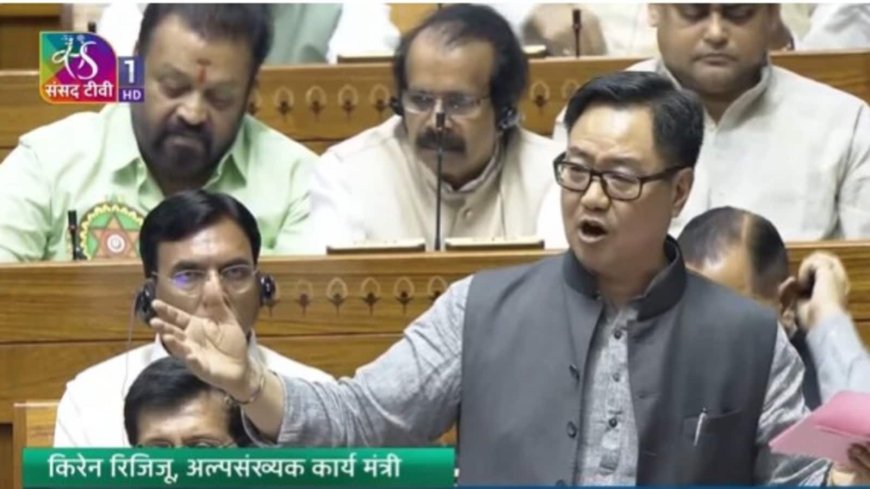Why Waqf Bill needs amendment: Key takeaways from Kiren Rijiju fiery speech
Minority Affairs Minister Kiren Rijiju addressed the Lok Sabha, stating that without the bill, claims on the Parliament building and airport as waqf properties could arise, accusing the opposition of misleading the public regarding the Waqf Bill.

Why Waqf Bill Needs Amendment: Key Takeaways from Kiren Rijiju's Fiery Speech
In a compelling address, Union Minister Kiren Rijiju highlighted the urgency for amendments to the Waqf Bill, stirring significant dialogue among lawmakers and the public alike. His fiery speech not only dove into the intricacies of the existing Waqf laws but also pointed out critical gaps that need immediate attention for reform. News by dharmyuddh.com aims to summarize the essential points from this pivotal discussion.
Understanding the Waqf Bill
The Waqf Bill serves as a crucial framework for managing and regulating Waqf properties in India, which are essential for the welfare of the Muslim community. However, Rijiju's comments raise questions about the current legislation’s effectiveness in safeguarding these assets. Amendments are proposed to enhance transparency, accountability, and better management practices within Waqf institutions.
Key Issues Highlighted in the Speech
Rijiju's speech brought forth several key issues that underline the necessity for amendments:
- Lack of Transparency: The existing regulations often lead to mismanagement. Rijiju emphasized that improved transparency would foster trust and reliability in Waqf management.
- Administrative Challenges: He pointed out the bureaucratic hurdles that stifle the development potential of Waqf properties, advocating for streamlined processes.
- Modernization Needs: Rijiju suggested that the Waqf Bill should adapt to modern economic contexts to enhance revenue generation from Waqf assets.
- Empowerment of Local Boards: Local Waqf boards need more authority and resources to ensure that the properties are used effectively for community welfare.
The Call for Immediate Action
The urgent tone of Rijiju’s speech signifies the government's commitment to address these issues. He encouraged stakeholders to come together and discuss the reforms needed to modernize the Waqf Bill. Ensuring that these amendments take place is essential for empowering local communities and protecting their rights over the Waqf properties.
Conclusion
The debate on the Waqf Bill amendment initiated by Kiren Rijiju serves as a critical juncture for policymakers and community leaders. Acknowledging the flaws within the current system is the first step towards implementing effective solutions that will cater to the needs of the Muslim community and enhance the management of Waqf assets across India. News by dharmyuddh.com will continue to provide updates as the situation develops and reforms progress. Keywords: Waqf Bill amendment, Kiren Rijiju speech highlights, Waqf property management, reforming Waqf laws, transparency in Waqf administration, local Waqf boards empowerment, challenges in Waqf management, modernization of Waqf assets, community welfare through Waqf







